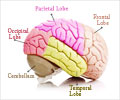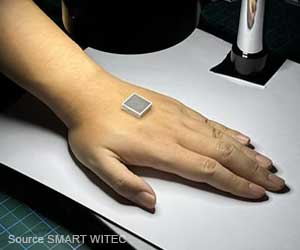The ability to experiment with bionic brain could contribute to better understanding of Parkinson's, Alzheimer's, and replacing damaged parts of the brain.
A nano memory device which is capable of storing information in a way similar to a human brain has been developed by Australian scientists, including one of Indian origin. This discovery is a significant step towards the creation of a bionic brain. The ability to experiment with a bionic brain could contribute to better understanding of diseases such as Parkinson’s and Alzheimer’s, and ultimately replacing damaged parts of the brain. The device is 10,000 times thinner than a human hair. The research team from RMIT University in Melbourne who created the device stated that it imitates the complex engineering of the brain with its twisted mass of nerve pathways.
Research leader Hussein Nili said, "The development of these nano memory cells is a prerequisite for building these artificial neuron networks that are capable of matching the performance and functionality of their biological counterparts." Unlike digital storage devices that record data in binary streams, a nano memory cell can store information in multiple states because it is an analogue.
Nili compared the difference to a power switch that can turn lights on and off with one fitted with a dimmer that can adjust the intensity. He added, "It can give you much more flexibility in terms of what information you store and what functionality you get."
Indian-origin Sumeet Walia, co-author of the study believes the cell could be used to develop artificial intelligence that can store, recall and remember past events.
The study is published in the
Advanced Functional Materials.Source-Medindia

 MEDINDIA
MEDINDIA




 Email
Email









